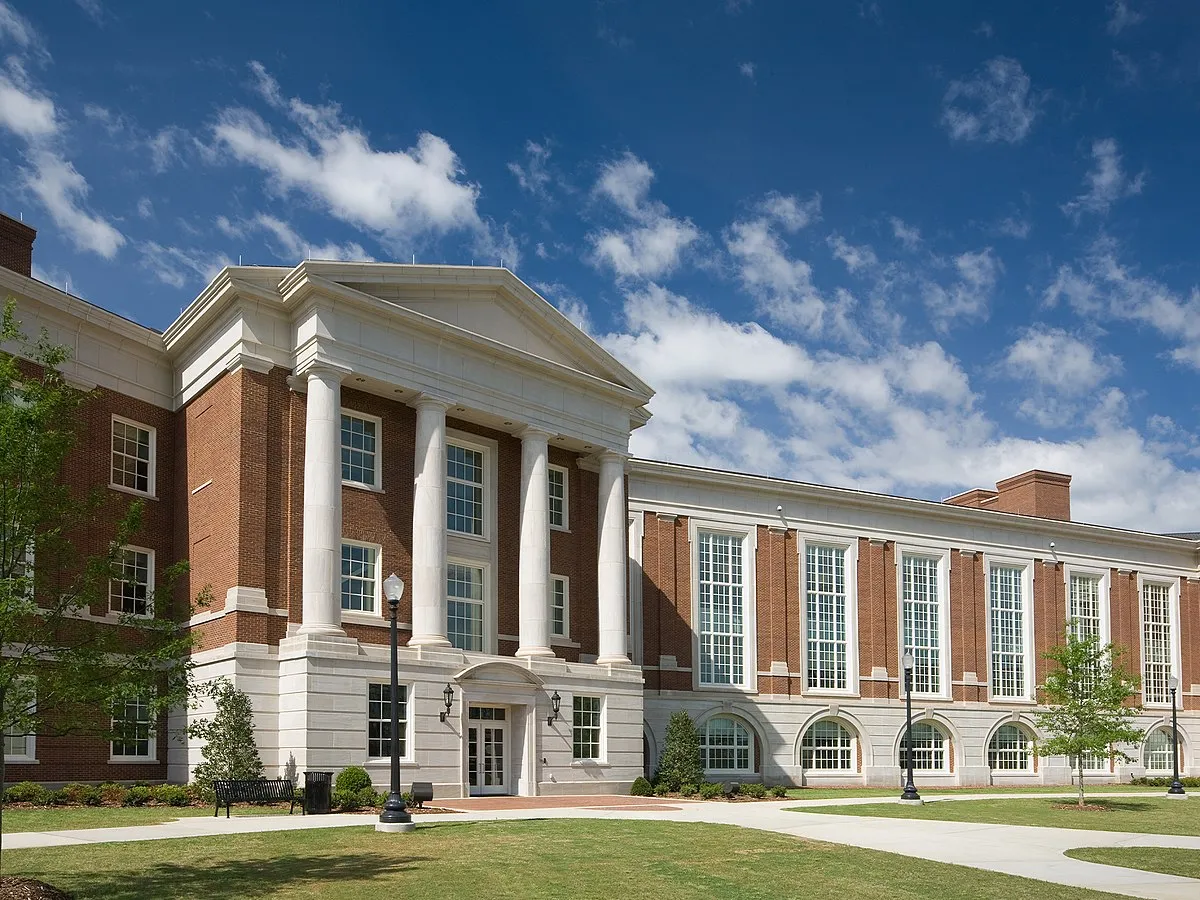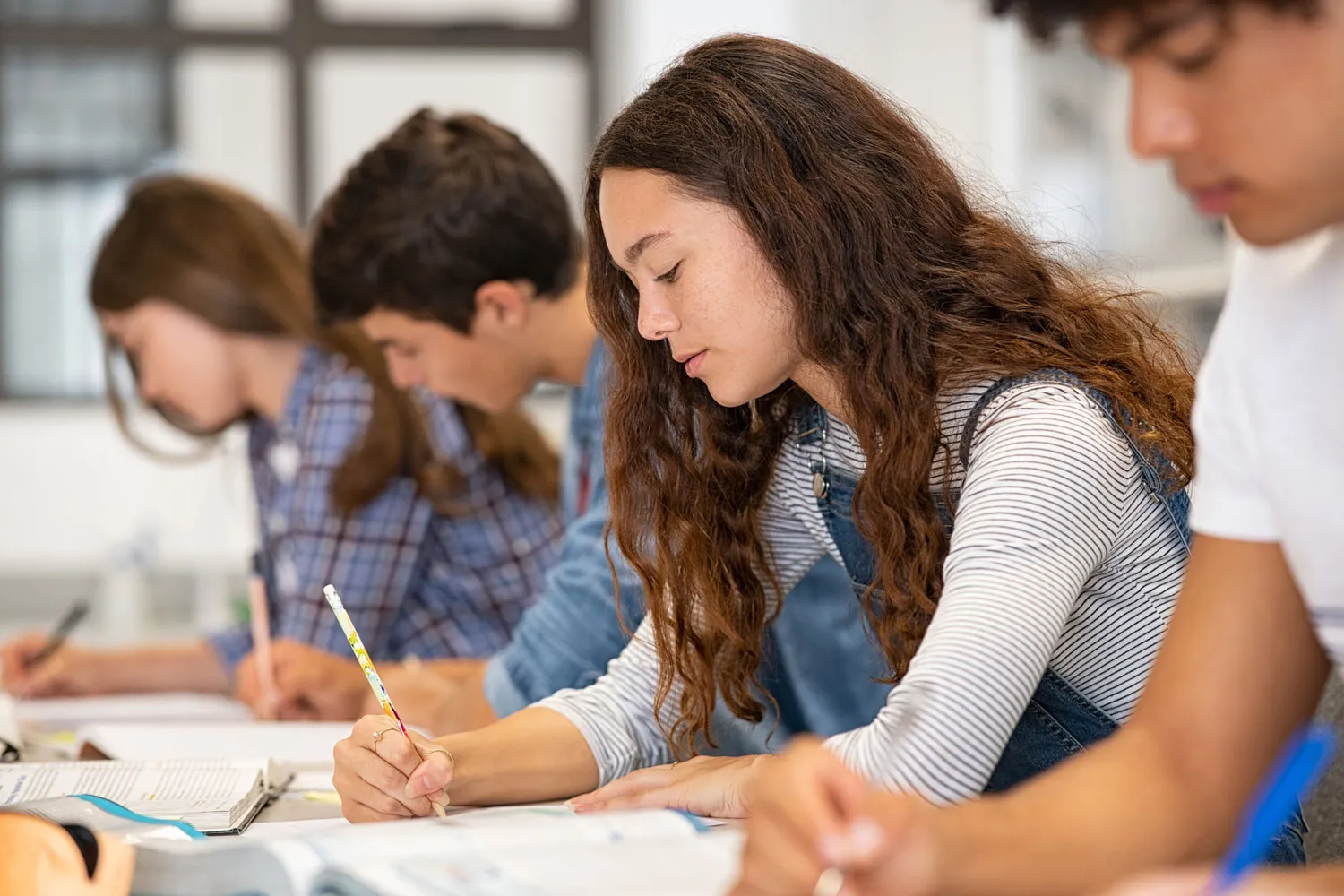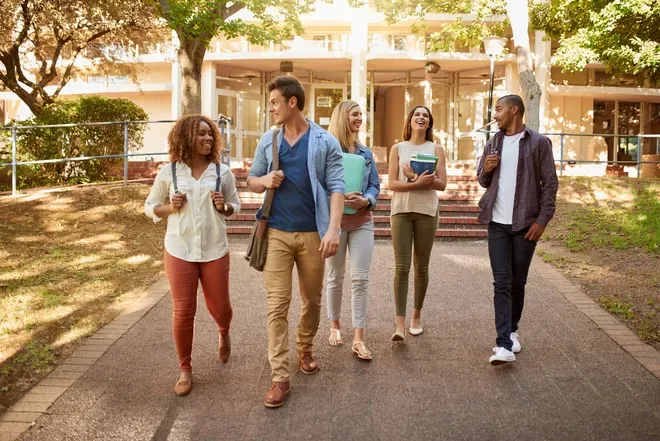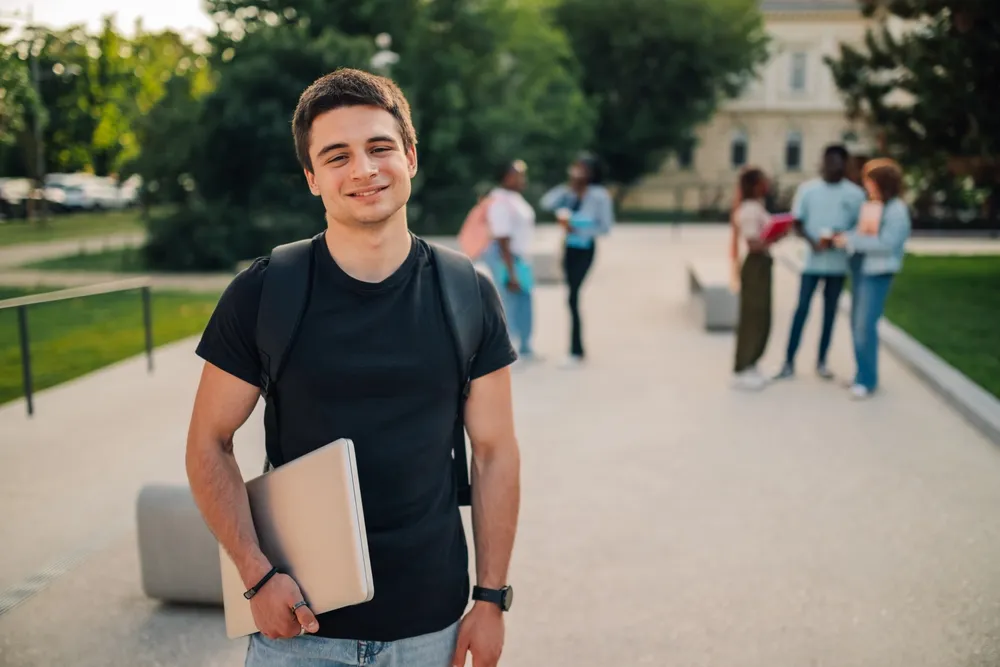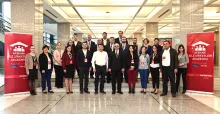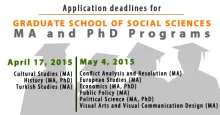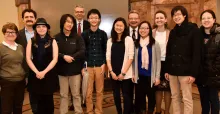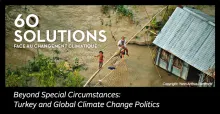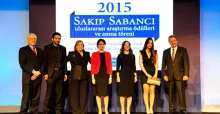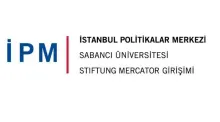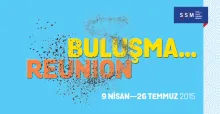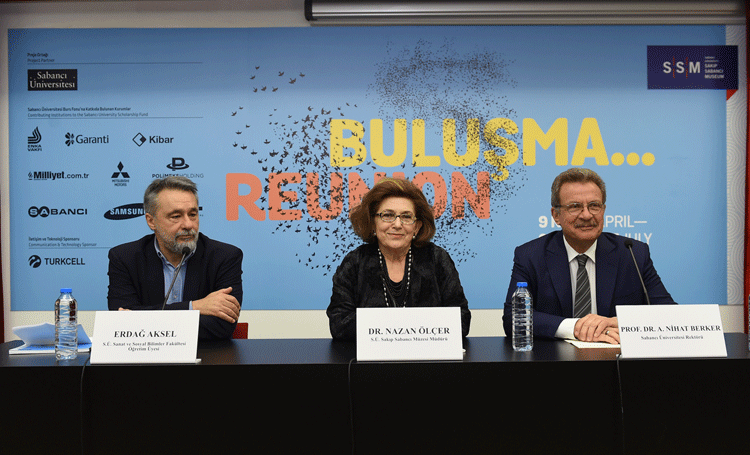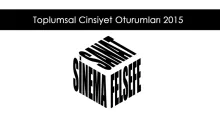2015 Sakıp Sabancı International Research Awards given for “Living Together, Dialog & Cooperation within Diversity in Turkey".

Sabancı University Founding Board of Trustees Chair Güler Sabancı:
"As you are all aware, some of the most critical items on Turkey's agenda are steps to ensure the democratic coexistence of differences. I believe that the analyses and solution recommendations offered in each of the studies will contribute to fostering an environment nourished by dialog and cooperation."
In honor of the late Sakıp Sabancı, Honorary Chairman of the Board of Trustees of Sabancı University, the “Sakıp Sabancı International Research Awards” were presented at a ceremony hosted by the Sakıp Sabancı Family, Founding Board of Trustees Chair Güler Sabancı, and President A. Nihat Berker on Friday, April 10, 2015 at the Sabancı Center.

This year's theme was “Living Together, Dialogue & Cooperation within Diversity in Turkey”.
Jury Prize was given to EmeritusEmeritus Profesör Martin Van Bruinessen layık görüldü. Professor Martin Van Bruinessen has been working on the Middle East and Turkey since the 1970s: Based on anthropological field studies, his book Agha, Shaikh and State: On the Social and Political Organization of Kurdistan spearheaded the largely unexplored area of Kurdish studies. Martin van Bruinessen’s ongoing work spans a diverse area from the Kurds to the Alevis, Islam, heterodoxy, Evliya Çelebi, Ottoman history, Middle East, Europe and Indonesia. His recent focus is on religion and Islam in the transnational sphere. Martin van Bruinessen was awarded the Jury Prize for his outstanding work and lifelong commitment to using the science of anthropology specifically for living together, dialog and cooperation within diversity.
The three equally-weighted Essay Awards were given to:
• Mahiye Seçil Dağtaş from the University of Waterloo for “Beyond Tolerance: Re/Presenting Religious Difference in the Case of the Antakya Choir of Civilizations”
• Haydar Darıcı from the University of Michigan for "Encounters in the Shadow of War: Turkey’s Kurdish Region"
• Anoush Tamar Suni from the University of California, Los Angeles (UCLA) for "The Ruin as Archive: Landscape and Memory in Anatolia".
Professor Martin Van Bruinessen received his award from Sabancı University Board of Trustees Chair Güler Sabancı. Essay Award winners received their prizes from Sabancı University Board of Trustees Member and the late Sakıp Sabancı's daughter Sevil Sabancı, and Sabancı University President Professor Nihat Berker.
The award supports scholars, particularly young social scientists, discussing a current issue on an academic level.
Sakıp Sabancı International Research Awards were established 10 years ago to honor the will of the late Sakıp Sabancı, and are given by Sabancı University in fields including Turkish and Islamic art, and the history, economy and sociology of Turkey. The award program is led by the Sabancı University Faculty of Arts and Social Sciences and the Istanbul Policy Center. Submissions are reviewed by an international panel of independent jury members. In the last decade, Sakıp Sabancı International Research Awards have been given in subjects ranging from Turkey's economy to foreign policy, history, and social dynamics.
Starting in 2015, the Board of Trustees and Sakıp Sabancı Family resolved to give the Sakıp Sabancı International Research Awards as part of the Remembrance Ceremony. Award themes in previous years were other pressing issues such as “Checks and Balances in Democracy: the Turkish Case from a Comparative Perspective” and “Gender Equality in Turkey”. The theme for 2015 was “Living Together, Dialogue & Cooperation within Diversity in Turkey”.
The 2016 awards will be given in "New Centers in Turkey: Economy, Education, Art and Peace in Cities". In the tradition of the previous awards, the 2016 Sakıp Sabancı International Research Awards will seek to support scholars, particularly young social scientists, discussing a current issue on an academic level.
"Only education must be the compass of nations striving to go forward. Our duty is to build effective platforms."
In her introductory remarks, Sabancı University Founding Board of Trustees Chair Güler Sabancı said that by merging the Sakıp Sabancı International Research Awards with a special night to remember the late Sakıp Sabancı, they have added to the meaning of both occasions.
Güler Sabancı continued, “Almost everyone's mental image of Sakıp Sabancı is the same whether they knew him or not: his bounding positive energy, candidness, genuine attitude, industriousness, wittiness and smiling eyes. But to me, what sets him apart from everybody is how appreciated he was as a businessman by the Turkish people as a whole."
Emphasizing the importance of education, science, scientists and innovation for Sakıp Sabancı, Güler Sabancı said that he was a close follower of innovation. Güler Sabancı explained, “He wanted to be a step ahead of time in both thought and activity. So he listened to the youth and took their opinions. He always reminded everyone to clear the way for the youth, and express his confidence in them. These are why his greatest dream was building a university. And he was fortunate enough to see his dream come true. Today, Sabancı University is among the best in Turkey. Our institution leads the way with an education model that makes a difference, and provides world-class education to thousands of youths."
Speaking on the significance of choosing "Living Together, Dialogue & Cooperation within Diversity in Turkey" as this year's theme, Güler Sabancı said, "As you are all aware, some of the most critical items on Turkey's agenda are steps to ensure the democratic coexistence of differences. I believe that the analyses and solution recommendations offered in each of the studies will contribute to fostering an environment nourished by dialog and cooperation."
Güler Sabancı concluded by saying: "Only education must be the compass of nations striving to go forward. Our duty is to build effective platforms."
I wish a bright future for young scholars and the society of Turkey
Jury Award winner Professor Martin Van Bruinessen said, "It will be a great honor if my writings have contributed to living together, cooperation and dialog between ethnic groups in Turkey."
Bruinessen warned academics that their studies may have limited impact on the society. He noted the possible contribution of prominent business figures like Sakıp Sabancı to living together, cooperation and dialog in Turkey.
Professor Martin Van Bruinessen concluded, “The number of young scholars in Turkey is on the rise. The studies of this generation promise hope for Turkey. I am optimistic in my view of the country. I wish a bright future for young scholars and the society of Turkey."
About Martin VAN BRUINESSEN
Martin VAN BRUINESSEN (1946, Schoonhoven, Netherlands) studied theoretical physics and mathematics at Utrecht University, graduating 'cum laude' in 1971. He later switched to social anthropology, which he had been studying on the side. In 1974-76 he spent two years doing fieldwork in (the Kurdish-inhabited parts of) Iran, Iraq, Turkey and Syria for study of social organisation and social change among the Kurds. This fieldwork, supplemented with archival research, resulted in a Ph.D. thesis ("Agha, Shaikh and State: On the Social and Political Organization of Kurdistan") submitted to Utrecht University in 1978, revised versions of which were later published in German, Turkish, Kurdish, Persian, Arabic and again English.
During the years 1978-81 he traveled extensively in Turkey, Iran (on which he published a number of articles) and Afghanistan (where he worked in a village development project). In between (mainly during 1979-1980), he did research in Ottoman history and taught an advanced Turkish course, both at the Department of Turkish Studies of Utrecht University. The work on Ottoman history, done in cooperation with colleagues of different backgrounds, resulted in the edition and analysis of (parts of) the single major source on Kurdish society in the 17th century, Evliya Çelebi's Seyahatname.
From 1982 on, he has concentrated on Indonesia as a second area of research, spending altogether 9 years there in research and teaching on various aspects of Indonesian Islam. This included a year of fieldwork in a poor slum in the city of Bandung, four years as a consultant for field research methods at Indonesia's Institute of Sciences, supervising large research projects on Indonesia's ulama and on co-operatives in various parts of the country, and two and a half years as a lecturer of sociology of religion and related subjects at the State Institute of Islamic Studies in Yogyakarta. These activities resulted in numerous publications, in English and Indonesian, including the monographs Tarekat Naqsyabandiyah di Indonesia (1992), NU: Tradisi, Relasi-relasi Kuasa, Pencarian Wacana Baru (1994), and Kitab Kuning, Pesantren dan Tarekat: Tradisi-tradisi Islam di Indonesia (1995).
Between his stays in Indonesia he returned several times to the Middle East on short research trips, focusing on Kurdish and Turkish politics and religious movements, notably on shifting ethnic and religious identities in Turkey and on developments in the Kurdish movement. In 1994 van Bruinessen returned to the Netherlands as an assistant professor of Kurdish and Turkish studies at the Department of Arabic, Persian and Turkish Languages and Cultures of Utrecht University. During the course year 1996-97 he was a guest professor for Kurdish studies at the Institute of Ethnology of Berlin's Free University. He also taught, for shorter periods, at the Institut National des Langues et Civilisations Orientales (INALCO) in Paris. Much of his writing on the Kurds of this period was collected in the two volumes Mullas, Sufis and Heretics: The Role of Religion in Kurdish Society (2000) and Kurdish Ethno-nationalism Versus Nation-building States (2000).
In 1999 van Bruinessen was appointed to the chair of comparative studies of modern Muslim societies at Utrecht University and the International Institute for the Study of Islam in the Modern World (ISIM). At the latter institute, he co-ordinated the research programs ‘Islam, Civil Society and the Public Sphere’ and ‘The Production of Islamic Knowledge in Western Europe’ and organized numerous conferences and workshops. His major publications were the coedited volumes Sufism and the ‘Modern’ in Islam (with Julia D. Howell, 2007), The Madrasa in Asia: Political Activism and Transnational Linkages (with Farish A. Noor and Yoginder Sikand, 2008), Islam and Modernity: Issues and Debates (with M. Khalid Masud and Armando Salvatore, 2009), Producing Islamic Knowledge: Transmission and Dissemination in Western Europe (with Stefano Allievi, 2011) and Contemporary Developments in Indonesian Islam: Explaining the ‘Conservative Turn’ (forthcoming).
Van Bruinessen retired formally from Utrecht University in 2011, but he continues PhD supervision there as well as at several other universities, and was a guest professor at the Aga Khan University’s Institute for the Study of Muslim Civilizations in London in the 2011-12 winter semester. From September 2012 onwards, he is a senior visiting researcher at the Asia Research Institute of the National University of Singapore.
Besides the major West European languages, Van Bruinessen is fluent in, and has lectured in, Turkish and Indonesian, reads and speaks Kurdish and Persian, and has passive knowledge of Arabic. He has made most of his scholarly work available to the people with whom it deals in the form of Indonesian, Turkish, Kurdish, Persian and Arabic translations.
Downloadable publications
http://www.hum.uu.nl/medewerkers/m.vanbruinessen/publications/index.html
Complete list of publications
http://www.hum.uu.nl/medewerkers/m.vanbruinessen/publicaties-eng.html



